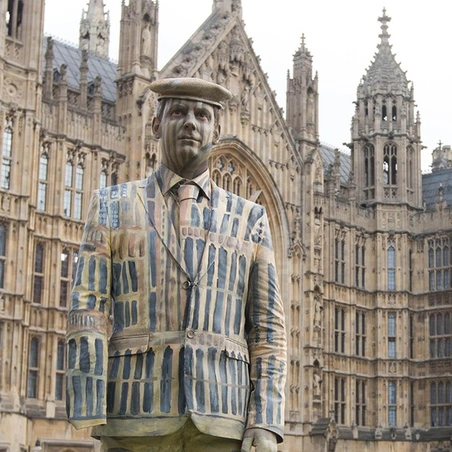Following our successful Insult to Injury campaign, veterans such as Keith Clarke no longer see their military compensation taken to cover social care costs.
Keith joined the Navy as a submariner in 1996 and was discharged in 1999 after a serious fall.
After a back operation in 2007 he was left permanently paralysed from the waist down.
As a paraplegic and a single father his war pension was his only source of income – half of which was being taken to pay for his social care costs.

“In 1999 I was out at sea when an oxygen candle fire broke out on board," explains Keith.
"I went in as part of the attack party to put it out, but somebody had left a vent plate open in the floor and, unable to see in the smoke-filled compartment, I fell down the hole.
“I landed on my back and had pins and needles all down my right arm, total numbness down my right leg, and pins and needles in my left leg.
“The doctors x-rayed my shoulders and neck and I was told that because I had fractured the top vertebrae in my neck the swelling was pushing on my spinal cord causing the pain in my lower back.”
After a stint in rehab Keith moved on to HMS Norfolk where he served for more than two years before being discharged from the Navy after another accident.
“One day I was helping lift things down a hatch and I bent over, but when I went to move my back it locked into place and I had to be helped off the ship,” explains Keith.
“I was taken to the on-call doctor at HMS Drake who put me on an ambulance to Derriford Hospital in Plymouth. I had an MRI scan and was told I was lucky to be walking – the fall in 1999 had smashed my spine.”
Becoming paraplegic
In 2007 Keith opted to have an operation to try and reduce back pain he was suffering, however, following surgery he was left with no feeling from the waist down.
“My spinal cord had been partially snapped when I had my accident and during the operation it had severed even more, leaving me permanently paralysed from the waist down,” explains Keith.
When I first came home, it was like the world had ended.
“The house we were living in wasn’t adapted for a paraplegic and in the first couple of weeks I fell down the stairs nearly 200 times.
"But it’s one of the things that’s sent to challenge you rather than hinder you."
Support with social care
“I had always been told that my financial input for my social care was zero. But the council said they wouldn’t totally disregard my war pension,” explains Keith.
From September 2014 Keith was required to pay almost £400 a month for non-residential care, which was almost half the £900-a-month he received from his war pension.
“To suddenly be told after all these years that I was going to have to start paying for my care and that half my war pension, which I live off, was going to disappear was upsetting,” he adds.
“When the local council tried to say my war pension should contribute to my housing and council tax benefit the Legion stepped in and it’s now totally disregarded.”




